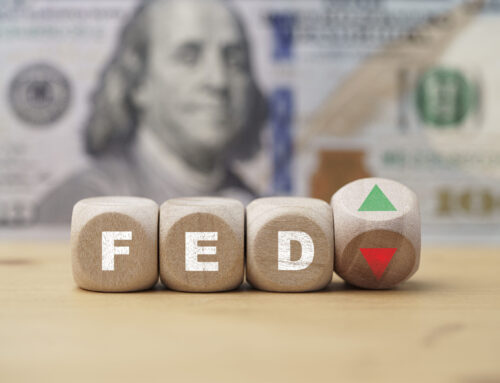
The topic of inflation has been sparking intense debate in the realms of finance and politics recently. It’s possible that you’ve personally experienced the effects of inflation. Maybe you’ve gone to purchase something only to find it’s significantly pricier than you anticipated. A good illustration of what has been happening recently with inflation is the cost of eggs. In 2022, an avian flu outbreak pushed the price of eggs up by nearly 60%.[1] While inflation is a complex matter, specialists have proposed several explanations for the recent surge. The pandemic-induced disruptions in supply chains are one such cause.[2] Labor shortages, elevated consumer demand, and the conflict in Ukraine that has caused oil supply issues are also contributing factors.[3]
It appears we might be reaching the end of high inflation. The rise in the consumer price index was only 4% in May, hinting at a potential slowdown in inflation.[4] For a healthy economy, moderate inflation isn’t a bad thing; in fact, it’s a good sign that money is available in the economy. This may be the case if businesses see success and individuals have more money to spend and can therefore comfortably absorb small increases in the prices of goods and services.[5] But high inflation that people and businesses aren’t equipped to deal with is often caused by external factors, as mentioned above. The US Government has set a goal for an annual 2% inflation rate, but that target has been challenging to reach due to the factors previously discussed.[6] Although we haven’t yet hit the 2% standard, the prevailing trends in the consumer price index suggest that inflation might be decelerating.
The federal government often curbs inflation by hiking interest rates, a method you might have observed recently as borrowing costs shot up.[6] If you’ve mulled over buying a property or securing a loan, you might have noticed that the interest rates are steeper than anticipated. Average interest rates on 30-year fixed home mortgages were about 7% as of June 16, 2023, compared to roughly 3.5% in 2021.[7][8] This surge in rates is what the Fed means when it says it will raise rates. The goal is to hold back spending so that when people spend less, inflation will consequently drop.[9] This is true for businesses carrying debt as well.
Planning for inflation is a key strategy for retirement, given that inflation can gradually reduce the value of your cash assets. To counteract this decrease, you might want to think about solutions. If you need guidance in navigating retirement planning, our financial advisors are at your service for a free evaluation of your financial status. They are just a call away.
[1-3] https://www.cnbc.com/2023/01/13/why-inflation-hit-these-10-items-hardest-in-2022.html
[4] https://www.cnbc.com/2023/06/13/heres-the-inflation-breakdown-for-may-2023-in-one-chart.html
[5-6, 9]https://www.investopedia.com/ask/answers/12/inflation-interest-rate-relationship.asp
[7] https://www.cnbc.com/2023/06/14/mortgage-demand-surges-higher-as-interest-rates-fall-.html
[8] https://money.com/todays-mortgage-rates-june-22-2021/





